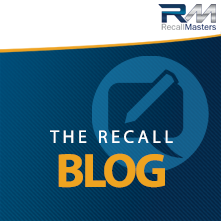The ‘Recall Ripple’ Effect, and How it Spreads
Handling a single recall well can have implications for other related efforts, which means every dealer needs to work hard to communicate with its owner population. The American Marketing Association (AMA) features information on the way that “negative chatter” about recalled vehicles impacts rival brands as well.
“Recall publicity has a wider reach than those involved may realize.”
A study cited by this source found that companies lose nearly $4 million in monthly sales revenue during a recall due to comments about a rival brand. This research is based on information about 48 different models recalled as late as 2010.
The authors of the study concluded that negative discussions about recalled cars spreads to other brands not included and creates a larger swell in “bad press.” Publicity surrounding a single recall therefore has a wider reach than those involved may realize at the time.
“Rather than rival brands looking good by comparison, bad press about the recalled brand quickly becomes bad press about rival brands,” they wrote. To counter this, the authors suggest “as soon as a rival has a recall, firms should lie low and avoid comparisons with firms undergoing a recall crisis, thereby minimizing perverse halo effects or negative spillovers.”
Recall marketing efforts help mitigate negative feelings by ensuring customers that their concerns are serious. When a recall is active, dealerships can create priorities to make sure they address the most pressing issues as they arise, keeping customers happy.
Keeping in touch with the most recent recall news also affects how well the dealer is able to address consumer concerns, which could include being aware of how customers are reacting to other similar recall actions.

